The problem is to swap every two variables in the array. Conditionals are not allowed.
Input: 1,2,3,4,5,6,7,8
Output: 2,1,4,3,6,5,8,7
Here's my code:
.data
arr BYTE 1,2,3,4,5,6,7,8
counter DWORD 0
.code
main proc
xor eax, eax
mov eax, LENGTHOF arr ; calculate length of array
mov counter, eax
xor eax, eax
xor esi, esi
mov esi, OFFSET arr ; now esi contains address of arr
xor ecx, ecx
; set ECX counter for Loop according to ECX
mov ecx, counter
mov counter, 0
L1:
xor eax, eax
xor ebx, ebx
mov eax, [esi]
inc esi
mov ebx, [esi]
dec esi
mov [esi], ebx
inc esi
mov [esi], eax
inc esi
dec ecx
loop L1
invoke ExitProcess,0
Now instead of the expected output, I got some gibberish so I debugged the first swap and found something strange:
What should have essentially been 2,2,3,4,5,6,7,8, seems like has shifted a place instead!
Why is this behaviour? How to fix it?

